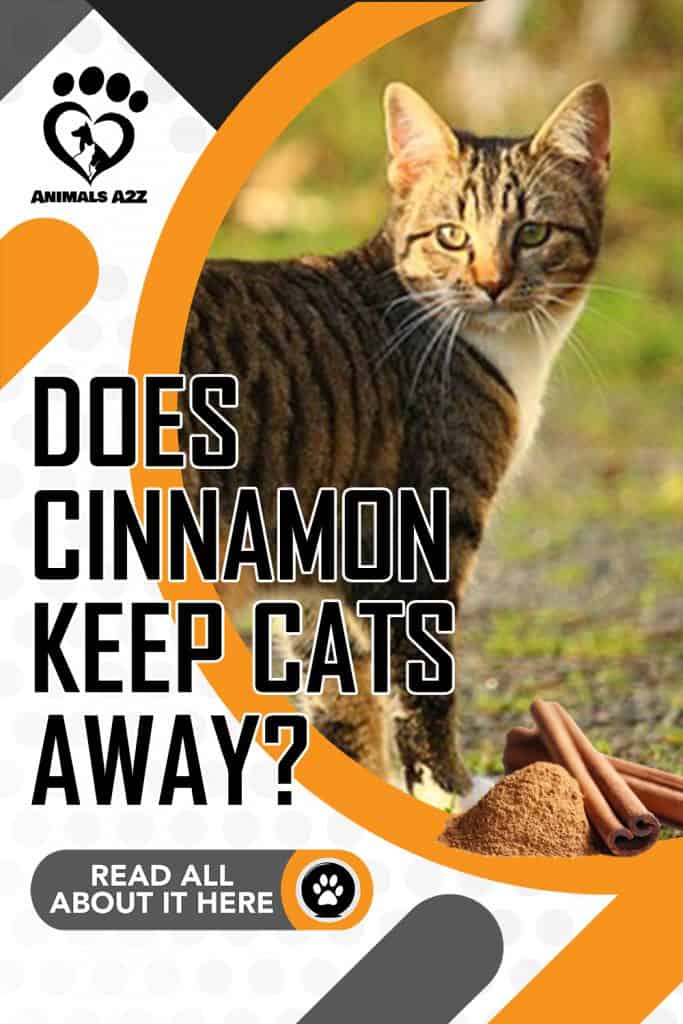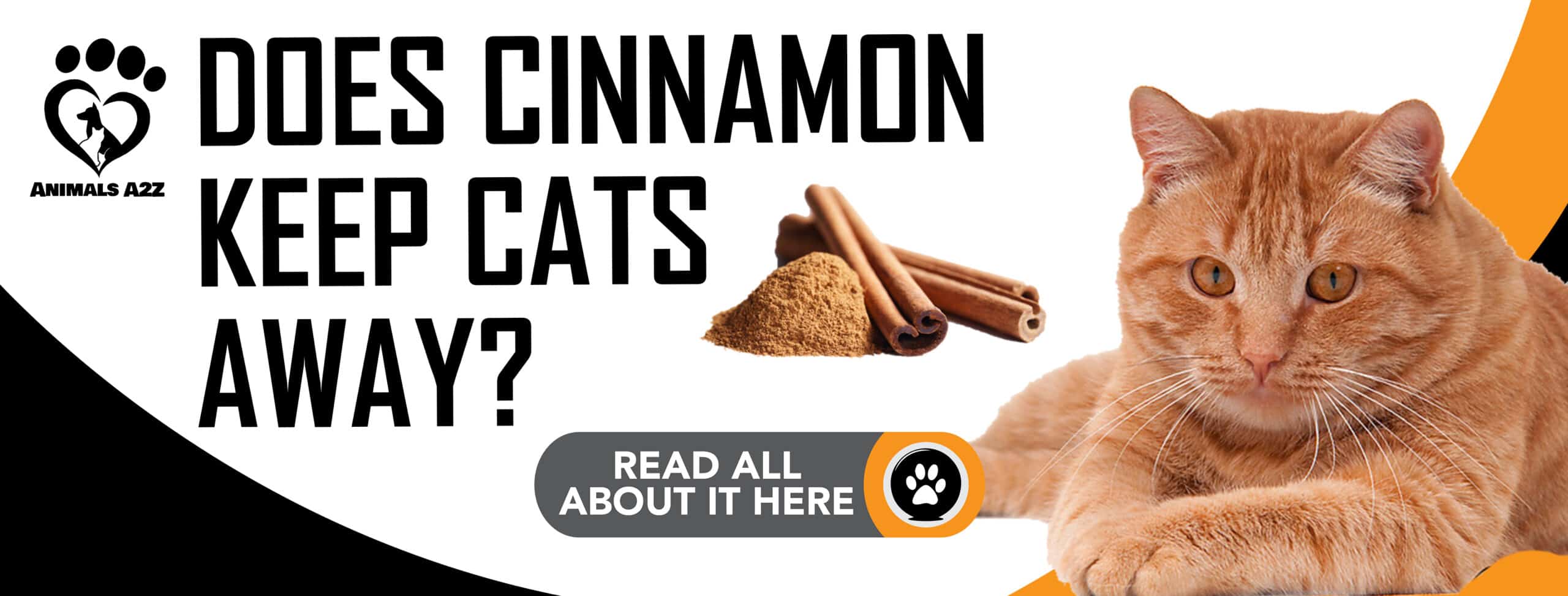You want to have a peaceful afternoon, sipping tea and maybe watch a little television. However, cats fighting and cats in heat are making things difficult for a nice afternoon escapade. It’s okay, you like cats but don’t want the trouble that they bring. You have a cinnamon stick to throw but read online that it can ward off unwanted friends. How and why does it work?
Table of Contents
Is cinnamon able to keep cats away?
Most cats do not like cinnamon, and it can in many cases keep cats away from your flowerbeds or other places in your garden. Most cats really hate cinnamon, and it is therefore often used as a cat deterrent. In a few cases cats like cinnamon, so I won’t keep them away every time.
There are a few things you need to know before you start using cinnamon to keep cats away!
Felines sensitivity to strong odors
Cats have fifteen times stronger olfactory sense than that of humans. It is considered to be their best asset, they use it to hunt and guide them to their prey. It also serves as a safety mechanism, they can tell if the food is safe to eat or if it’s toxic. Being in the wild for thousands of years really sharpened their senses since cats are nearsighted.
Cats can also tell if another cat is nearby, as what was told earlier, cats rely heavily on scents. Marking their territory is very normal for cats, they will know if another cat trespassed and will most probably be on the lookout often to stay alert. Male cats can also tell if a female cat is in heat through her scent. Cats excrete a certain pheromone that only cats can tell.
To familiarize themselves with other felines, they would often sniff each other’s noses, sides and very peculiarly, the butt. Since cats are very sensitive to scents, they detest strong smelling plants and anything that might overwhelm their senses.
Cats have vomeronasal organs or Jacobson’s organs. This is located on the roof of their mouth. According to a blog called Cat Behaviors Associate, “vomeronasal organs contain ducts that lead to the mouth and to the nose. This is essentially a scent analyzer. It’s used primarily for analyzing pheromones (scent chemicals) from other cats, especially the ones found in urine.”
Cinnamon as a natural cat repellent
Cinnamon is a very effective way to deter cats. Most cats find cinnamon’s fragrance too strong for them. Some pet owners actually sprinkle cinnamon around their flower beds to discourage their cats pooping in the area. However, ground cinnamon is discouraged as a cat deterrent since the grounds can stick to the cats’ nose and they may inhale enough for them to get sick because of it. According to a website called Catsaway, it is safer for the cinnamon to be made into a spray instead of sprinkling ground cinnamon.
Cinnamon spray is a very humane way to deter cats and discourage them from doing their business in your yard. Cinnamon spray is also effective in training your cat and identifying no-no areas for your feline friend. A lot of furparents are using cinnamon sprays to protect the surfaces of their furniture where the cat would often scratch.
Cinnamon Spray
Since cinnamon is very effective in keeping felines out of the property, cinnamon spray is easy enough for you to make. Follow these simple instructions to make your DIY cat repellent:
- Boil 2 ounces of water
- When water is boiling, place 2 sticks of cinnamon and stir.
- Boil for 5 minutes and let it sit.
- If it’s cooled down, transfer the cinnamon water to a 59 ml glass spray bottle or any bottle you fancy.
- Add 1 teaspoon of dry mustard
- Add 1 teaspoon of black pepper
- Mix them together and spray them to areas where you don’t want the cats to hangout
P.S do not use cayenne pepper as a substitute for black pepper because cayenne pepper may be effective in keeping them out, but it will also hurt them.
Common Questions
Your questions answered!
What are the other repellents that are safe for cats?
Aside from cinnamon, you can use other repellents as well:
- Lavender
- Apple cider vinegar
- Curry plant
- Citronella
- Peppermint
- Eucalyptus
- Rosemary
- Geraniums
- Pennyroyal
- Common Rue
How do cats use their vomeronasal organ?
Vomeronasal organ or Jacobson’s organ is a secondary smell organ that helps cats “taste the air particles.” In other terms, it helps them detect a specific chemical compound. This is especially helpful to cats when hunting since they are nearsighted and their olfactory sense is the most heightened for a successful capture. It can also detect pheromones and identify if the female is in heat or not. This organ also helps them in distinguishing a “bad food.”
A website called My Animals explained how cats use their vomeronasal organ. According to this website, “they do this by opening their mouths and breathing through the upper part of it and following through with their lips. Then they wrinkle their nose and raise their head at the same time. This series of actions is called the flehmen response. It’s a biological reaction that closes the normal breathing passageways for a second so that air will go through the vomeronasal organ instead.”
So when a cat picks up certain air molecules, the receptors on their tongue will try to grab onto it and pass through the vomeronasal organ.
Cats use their vomeronasal organs for the following reasons: smell pheromones, food and self-defense.
Is cinnamon essential oil safe for cats?
All essential oils are bad for cats. When ingested, the cinnamon essential oil will hurt their stomach and intestines because their system does not have the capacity to process the oil. Essential oils are too concentrated for cats and they might need urgent medical attention. Cinnamon essential oil is too toxic for your cat.


